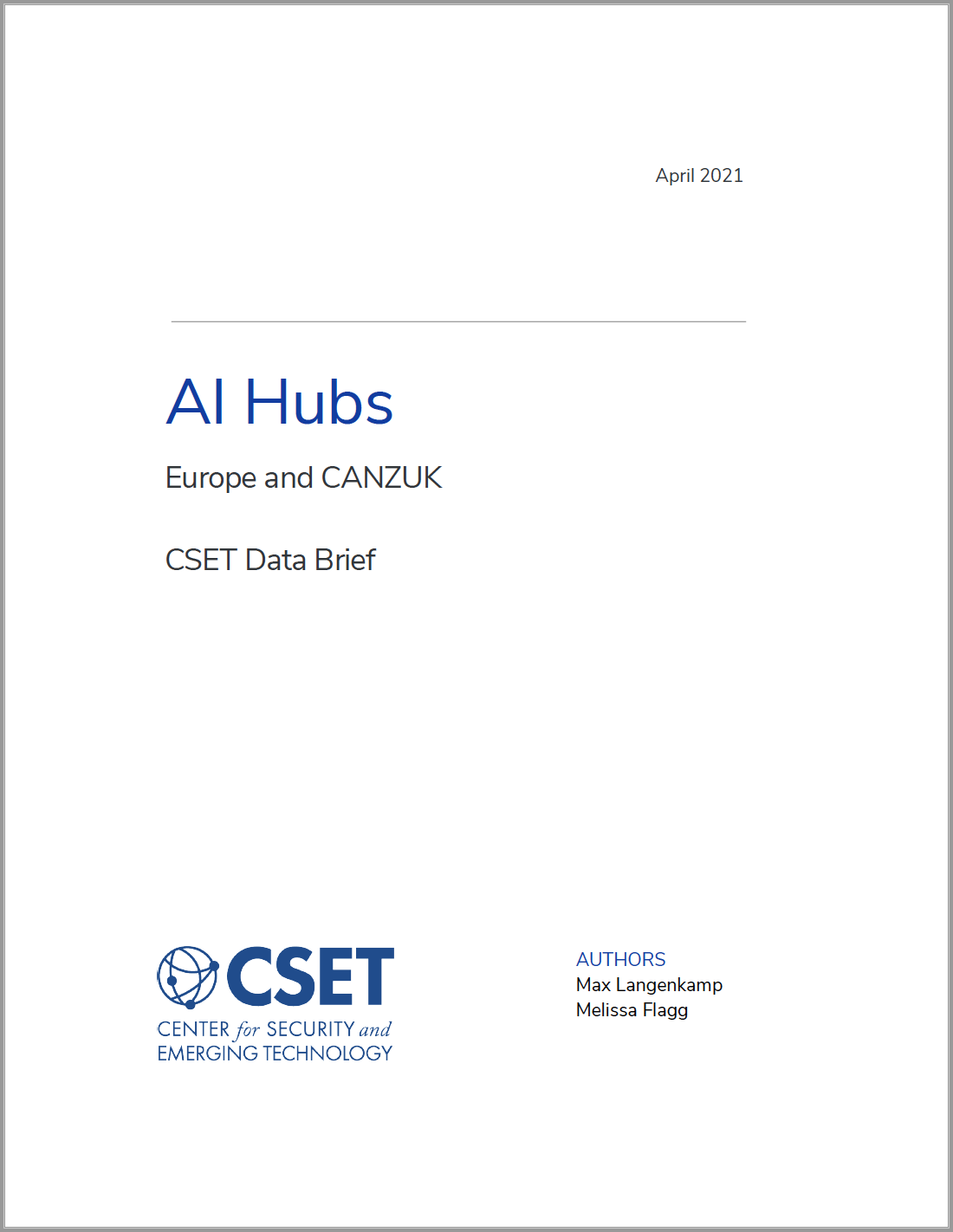Executive Summary
With the increasing importance of artificial intelligence to national and economic security, and the growing competition for AI talent globally, it is essential for U.S. policymakers to understand the landscape of AI talent and investment. This knowledge is critical as U.S. leadership develops new alliances and works to curb the growing influence of China. As an initial effort, an earlier CSET report, “AI Hubs in the United States,” examined the domestic AI ecosystem by mapping where U.S. AI talent is produced, where it is concentrated, and where AI private equity funding goes. That work showed that AI talent and investment was concentrated in specific, well-defined geographic centers referred to as “AI Hubs.”
Given the global characteristics of the AI ecosystem and the importance of international talent flows, it is equally important to consider the AI landscape outside of the United States. To provide insights to U.S. policymakers on the larger aspects of international AI talent, this paper builds on our earlier U.S. domestic research by exploring the centers of AI talent and investment in countries and regions that are key U.S. partners: Europe and CANZUK (Canada, Australia, New Zealand, and the United Kingdom). As before, we examine patterns of investment into privately held AI companies, the geography of top AI research universities, and the location of self-reported AI workers.
The key findings:
- Traditional treaty partners, including France, Germany, and CANZUK countries, contain both a high number of the top AI research universities and a high number of workers with self-reported AI skills.
- Overall investment into privately held AI companies in Europe and CANZUK is clustered in the United Kingdom, Canada, Germany, and France.
- Chinese investment into privately held AI companies in Europe and CANZUK from 2015 to 2019 is consistently low (less than 3 percent).
